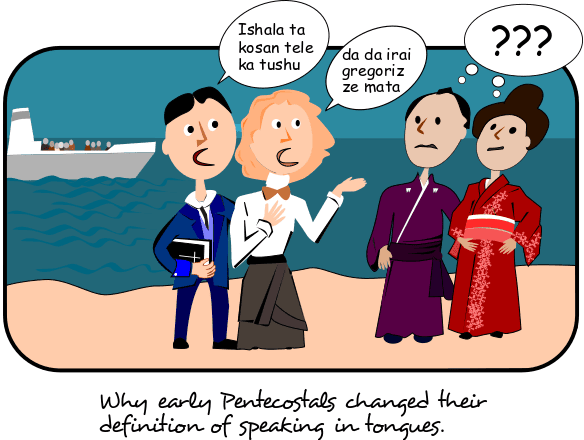An indepth look at the development, expansion, and failure of Pentecostal missionary tongues and a critical public that called it gibberish.
Early Pentecostalism and especially the Azusa Street outbreak of tongues in 1906 caused a revival in the practice of speaking in tongues. The outbreak initially continued a traditional one that parallels Christian history for over 2000 years. The early Pentecostals understood that certain individuals were inspired by the Holy Spirit to miraculously speak a foreign language. When this occurred, there was some perceived divine revelation on what language the person spoke. They understood this knowledge as a sign for the person to go to the people group or nation to tell the Good News. Unfortunately, this fervor was badly hit by a dose of reality. These Pentecostal missionaries arrived at their destinations and found that they did not have this ability.
